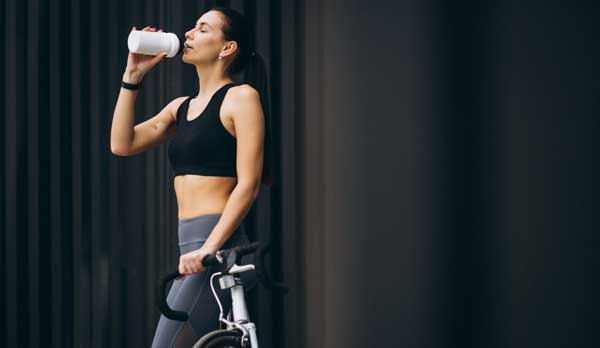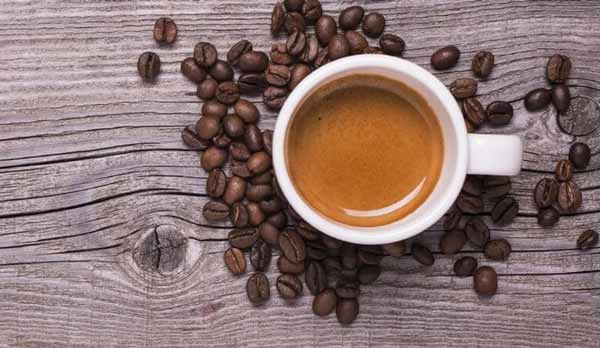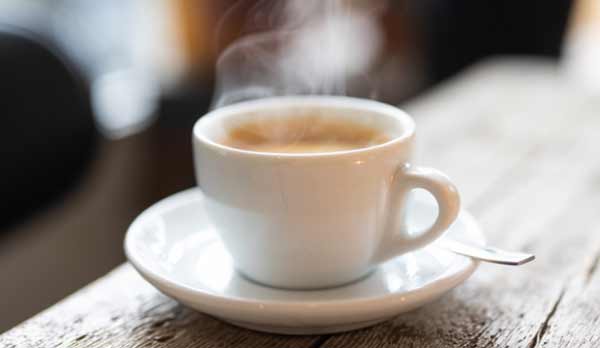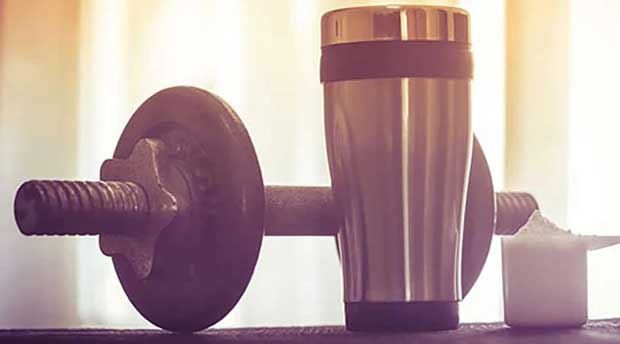Dear coffee lovers, the topic of the day is coffee for athletes, or rather: decaffeinated for those who play sports. Usually in the evening, when we are looking for a moment of calm, caffeine-free coffee can be a great choice. But what do athletes think? Let’s see together.

Decaffeinated for athletes: a conscious choice
Caffeine-free coffee, often chosen for its low levels of caffeine, emerges as an ideal solution not only for those trying to limit the intake of this substance but also for athletes who are careful about their diet and sleep patterns. Decaffeinated coffee for athletes is not just a choice but a real dietary strategy that allows you to enjoy the pleasures and benefits of coffee without the potential side effects of caffeine.
Athletes, in particular, can benefit from this drink, as it does not interfere with rest and recovery cycles, which are essential for excellent athletic performance. Gaia Gottardi underlines how decaffeinated coffee can be integrated into the athlete’s daily routine, offering a moment of pause and pleasure, without compromising hydration or causing tension and nervousness typical of excess caffeine.

Decaffeinated coffee and sport: a winning agreement
Again according to Gaia Gottardi, an expert in sports nutrition, decaffeinated coffee is establishing itself as a precious ally in the world of sport, appreciated for its ability to integrate into athletes’ diets. Its role goes beyond simply providing a pleasant break; in fact, decaffeinated actively contributes to maintaining optimal hydration, a fundamental element for those who practice physical activity. The absence of caffeine, a well-known diuretic, allows athletes to enjoy the pleasure of coffee without worrying about counterproductive effects on the body’s water balance, which is crucial both during training and in the recovery phases.
Beyond the hydrating aspect, caffeine-free coffee is particularly appreciated for its ability to not interfere with the nervous system. This feature proves essential for athletes who seek to maintain a state of calm and concentration, avoiding the anxiety or hyperactivity that can result from excess caffeine, especially in the evening hours. An unstressed nervous system promotes not only more focused and productive training but also faster and more qualitative recovery, thanks to the promotion of deep and restful sleep. Gottardi underlines how adequate rest is essential for muscle regeneration and mental preparation, two aspects that every athlete must take care of carefully.
Integrating caffeine-free coffee into your daily routine therefore becomes a strategic choice for those who want to get the most out of their physical activity, expertly balancing energy, relaxation and pleasure. Its inclusion in the diet of an athlete testifies to a holistic approach to well-being, in which each element consumed plays a specific role in supporting athletic performance and recovery, highlighting how even a small change, such as the choice of decaffeinated coffee, can have a significant impact on the quality of sporting life.

The advantages of caffeine-free coffee
The decaffeinated coffee stands out for its unique qualities that go far beyond the simple reduction of caffeine. This drink offers an ideal solution for those who want to maintain a calm evening routine, promoting deep and restful sleep, thanks to its absence of stimulants. It is also particularly appreciated for its gastric delicacy, representing a preferential choice for those suffering from stomach sensitivity or conditions such as gastroesophageal reflux.
Its less irritating nature than traditional coffee makes it an inclusive drink, suitable not only for athletes looking to preserve their water balance and night’s rest but also for anyone who wants to enjoy the pleasures of coffee without the side effects associated with caffeine.
The recommended quantities
When it comes to consuming decaffeinated espresso, moderation is the key to maximizing the benefits without encounter potential negative effects. Gaia Gottardi, with her experience in the field of nutrition, recommends a consumption of three to four cups per day as the optimal dosage for most adults. This quantity allows you to make the most of the virtues of decaffeinated coffee, such as its ability to provide a moment of pleasure and relaxation, without overloading the body. Following these guidelines helps maintain a healthy balance, allowing caffeine-free coffee to be included in a balanced diet, without giving up the
In conclusion, caffeine-free coffee proves to be an excellent choice not only for those who play sports but for anyone who wants a less stimulating drink. It is perfect for those looking to take care of their well-being without giving up the pleasure of a good coffee.




Visita il nostro e-shop e scopri tanti prodotti a prezzi vantaggiosi!